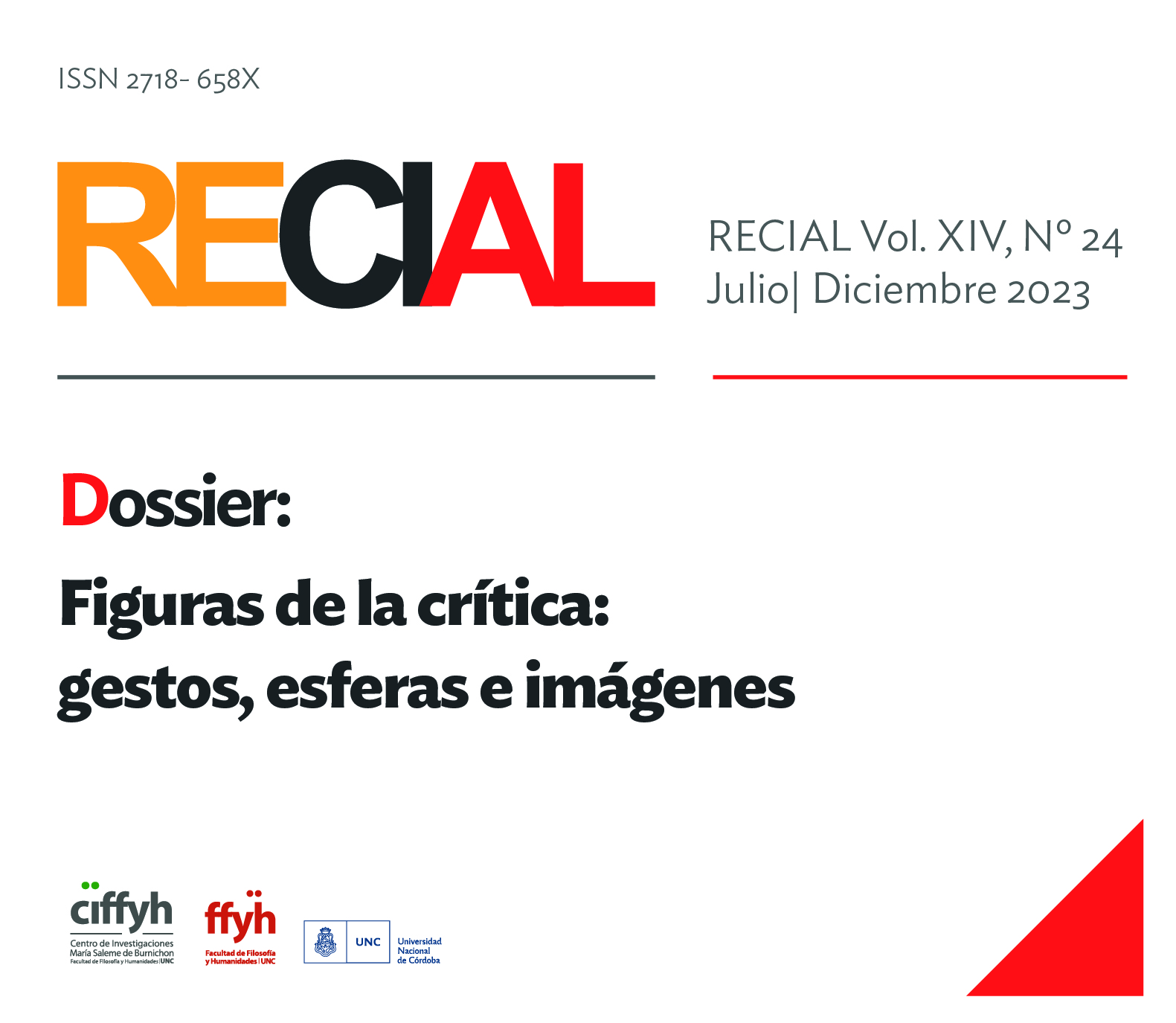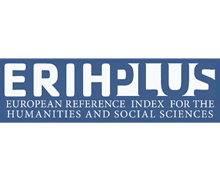An affective reading of the critical figure of Caliban in the theater of Marcos Azevedo
DOI:
https://doi.org/10.53971/2718.658x.v15.n24.43366Keywords:
Caliban, affect, subjectivation, desire, micropoliticsAbstract
The figure of Caliban has proven to be a lasting and flexible symbol to the changes in the political reality of Latin America. The objective of this article is to resume the reflection on the critical potential of the conceptual-character in light of Suely Ronik's cartography of desire. For this, we will propose an affective reading of the theatrical monologue by Marcos Azevedo, Caliban (1997). This implies activating thought in its ethical, aesthetic and political function; to re-imagine a world in every gesture, affection and word. It is the encounter with the other that enables an "out-of-subject" experience capable of updating the world.
The treatment that is going to be carried out on the Caliban metaphor does not intend to expand the representative flexibility of the Caliban trope, but rather to redouble its sign intensity, based on the analysis of the three movements of desire (territorialization, deterritorialization and reterritorialization) in order to inhabiting a state (intensity plateau) of permanent decolonization of thought. The critical figure of Caliban implies thinking from the outside, becoming-other, activating another sphere of subjective experience, one that is proper to our condition as living beings.
Downloads
References
Ahmed S. (2015) La política cultural de las emociones. México: PUEG.
Bonito, E. (1997). Calibán [Video] Recuperado de: https://globalshakespeares.mit.edu/caliban-bonito-eduardo-1997/
Césaire, Aimé (2011) Una tempestad Buenos Aires: El 8vo. Loco.
Darío, R. (1998). El triunfo de Calibán (1898) (Ed. y notas de Carlos Jáuregui). Revista Iberoamericana, 64(184), 451-455.
De Andrade, O. (1928) “Manifiesto Antropofágico” Revista de Antropofagia, Año 1, N° 1. Mayo.
Deleuze, G. y Guattari, F. (1993) ¿Qué es la filosofía? Barcelona: Anagrama.
Fernández Retamar, R. (1998). Adiós a Calibán. Guaraguao, 2(6), 103–114. Recuperado de http://www.jstor.org/stable/25596045
Fernández Retamar, R. (2000) Todo Calibán. Cuba: Fondo Cultural del ALBA.
flores, v. (2019) una lengua cosida de relámpagos. Buenos Aires: Hekht.
Giraldo, O. y Toro, I. (2020) Afectividad ambiental. Sensibilidad, empatía, estéticas del habitar. México: El Colegio de la Frontera Sur: Universidad Veracruzana.
Jáuregui, C. (2005) Canibalia. Canibalismo, calibanismo, antropofagia cultural y consumo en América Latina. España: Fondo Editorial Casas de las Américas.
Lugones, M. Colonialidad y género. Hacia un feminismo decolonial. En Mignolo, W. (Comp.), Género y descolonialidad (pp. 19-61) Buenos Aires: Del signo.
Montaigne, M. (1997) Ensayos I. Barcelona: Altaya.
Ponce, A. (1981) Humanismo burgués y humanismo proletario. De Erasmos a Romain Rolland. México: Editorial Cartago.
Quijano, A. (2014) en Palermo, Z y Quinteros, P. [Comp.] Aníbal Quijano. Textos de Fundación. Buenos Aires: Del Signo.
Renan, E. (1878) Caliban, suite de La tempête. París: Drame philosophique,
Rivera Cusicanqui, S. (2010) Ch’ixinakax utxiwa. Una reflexión sobre prácticas y discursos descolonizadores. Buenos Aires: Tinta Limón.
Rodó, J. E. (1946) Ariel. Buenos Aires: Editorial Jackson.
Rolnik, S. (1989) Cartografía Sentimental: Transformações Contemporâneas Do Desejo [Cartografía Sentimental: Transformaciones contemporáneas del deseo] San Paulo: Estaçao Liberdade.
Rolnik, S. (2005) Antropofagia Zombi: consumo, flexibilidad, servidumbre voluntaria. Buenos Aires: Hekht
Rolnik, S. (2019a) Esferas de la insurrección. Apuntes para descolonizar el inconsciente. Buenos Aires: Tinta Limón.
Rolnik, S. (2019b). En el principio era el afecto. Re-visiones, N° 9, ISSN-e 2173-0040, 1-22. Recuperado de enlace: https://dialnet.unirioja.es/servlet/articulo?codigo=7211198
Shakespeare, W. (2003) La tempestad En Autor Obras completas (Tomo II) (pp 525-562) España: Santillana Ediciones.
Viveiros de Castro, E (2020) Metafísica caníbales. Líneas de antropología posestructural España: Katz.
Downloads
Published
Issue
Section
License

This work is licensed under a Creative Commons Attribution-NonCommercial-ShareAlike 4.0 International License.
Aquellos/as autores/as que tengan publicaciones en esta revista, aceptan los términos siguientes:
- Los/as autores/as conservarán sus derechos de autor y garantizarán a la revista el derecho de primera publicación de su obra, el cuál estará simultáneamente sujeto a la Licencia de reconocimiento de Creative Commons que permite a terceros compartir la obra siempre que se indique su autor y su primera publicación esta revista.
- Los/as autores/as podrán adoptar otros acuerdos de licencia no exclusiva de distribución de la versión de la obra publicada (p. ej.: depositarla en un archivo telemático institucional o publicarla en un volumen monográfico) siempre que se indique la publicación inicial en esta revista.
- Se permite y recomienda a los/as autores/as difundir su obra a través de Internet (p. ej.: en archivos telemáticos institucionales o en su página web), luego de su publicación en la revista. (Véase El efecto del acceso abierto).























